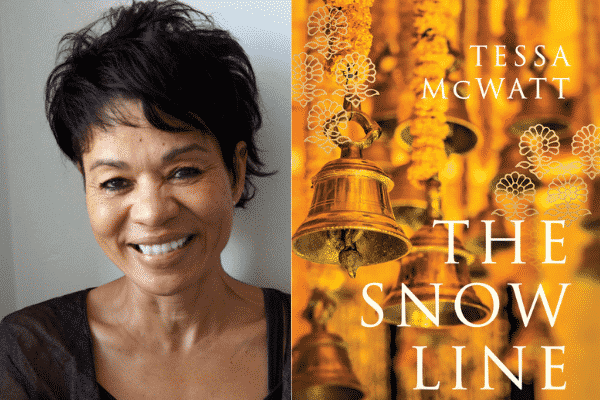At its core, Tessa McWatt’s The Snow Line is a book about belonging. It conveys a message that many migrants to Australia will understand – carrying feelings of longing and displacement even as they try to carve their place in a new landscape.
The Snow Line begins with four strangers who arrive to Pathankot, Punjab for a wedding. Each has their own link to India and their own expectations of what lies ahead. In terms of narrative, the wedding is secondary, and the true story lies in these four individuals, a motley crew brought together by chance.
Jackson, the oldest of them all at 86 years old, views his India trip through a nostalgic lens. He once lived in the country for decades with his wife Amelia and has returned one last time to scatter her ashes.
Reema is the bride’s childhood friend, a woman now in her mid-20’s who has lived outside India for so long that she searches for her Indianness in every experience she can muster.
Yosh is a yoga instructor from Vancouver. Outside India, he is successful and content but as he steps back onto Indian soil, he finds himself still negotiating with his Dalit roots.
And finally there is Monica, the bride’s cousin from Toronto, a “New World Indian” almost too enthusiastic in her endeavours to discover the land her family comes from.
It is nearly 90 pages into The Snow Line that the plot really begins: after the extravagant wedding, Jackson resolves to go north to scatter his wife’s ashes, and he joins Reema, Monica, and Yosh up to the mountains.
Tessa McWatt, a professor of creative writing, is masterful in her prose. Her writing style is evocative without going overboard, and she finds a way to add context and history without sounding like a guidebook to India. This is a novel that can appeal to Indian and non-Indian readers without alienating either party entirely.
In fact, McWatt’s own mixed heritage (Chinese, Indian, Scottish, African, Portuguese, Arawak and French) only adds legitimacy to the book’s exploration of belonging. After all, these are questions many in the diaspora would have encountered: how many times must you have visited India to reclaim your Indianness? What if you’ve never travelled back to the country of your ancestors? Is there a formula to determine how Indian you are anymore? In this regard, many readers might find Londoner Reema to be the most relatable character of all.
For those who are not spiritually inclined, the mystical appeal of the mountain experience could appear over the top. Caught between the lines here is a respect for a higher power in its various forms: love, God, and even music. It brings with it a certain heaviness that requires several sittings to complete the novel.
Still, like most good literature, The Snow Line is likely to appeal differently across demographics as there’s something in each character for every type of reader.
Without giving too much away, it is a meaningful story about all the things that make us unique, and all the things that make us decidedly different.
READ ALSO: 3 ‘killer’ books to read this weekend
Link up with us!
Indian Link News website: Save our website as a bookmark
Indian Link E-Newsletter: Subscribe to our weekly e-newsletter
Indian Link Newspaper: Click here to read our e-paper
Indian Link app: Download our app from Apple’s App Store or Google Play and subscribe to the alerts
Facebook: facebook.com/IndianLinkAustralia/
Twitter: @indian_link
Instagram: @indianlink
LinkedIn: linkedin.com/IndianLinkMediaGroup





